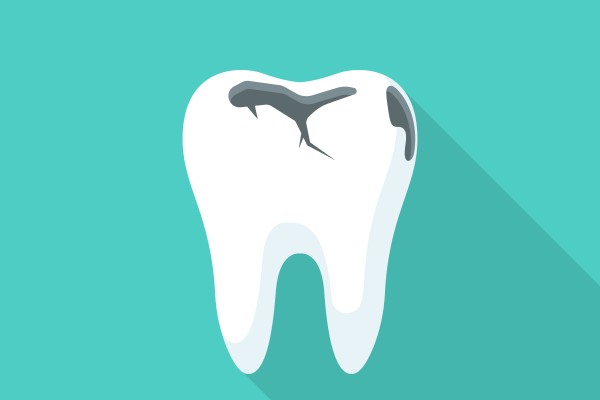How an Endodontist Treats Cracked Teeth

Do you have cracked teeth? Read on to learn more about treatment for cracked teeth. Such fractures need the services of an endodontist, a dental professional with many years of experience treating tooth pain and root canals. The American Association of Endodontists points out that timely intervention is important if you wish to save a tooth and avoid additional damage.
How an endodontist handles cracked teeth
An endodontist can fix cracked teeth because they specialize in internal tooth problems. They are trained to detect and deal with cracks that are not apparent in the surface area of the teeth. They examine the anatomy of the tooth and its root systems. These professionals employ various new diagnostic instruments, which include digital imaging and high-magnification microscopes, to identify the crack location and severity.
A comprehensive examination will be the first step toward addressing a cracked tooth. To determine the effect of a crack on a tooth and tooth pulp, an endodontist will perform a tactile assessment, biting test, and temperature sensitivity assessment. To establish the depth and orientation of the crack, x-rays and possibly 3D scans are taken. This evaluation will provide information to formulate a treatment program.
Treatment options for cracked teeth
The type, location, and severity of the crack will determine the treatment method:
- Minor surface cracks: Simple treatment options such as polishing or reshaping to smooth rough edges and prevent plaque buildup are often appropriate for superficial or small cracks.
- Fractured cusp: If the crack is near the cusp, the tooth could be fixed with a crown or filling to restore function and prevent further damage. If the crack penetrates the pulp chamber, a root canal may be necessary.
- Deep cracks expanding into the pulp: Such teeth require more complex treatment such as root canal therapy (removal of the pulp and sealing of the tooth’s interior). The next step will be the placement of a crown over the tooth to protect and strengthen it.
- Vertical root fracture or even split tooth: A serious crack may cause the tooth to break into smaller parts. The endodontist may try to save the tooth by performing a root canal and restoration. If the tooth is severely damaged, the only option would be to extract the broken pieces.
Aftercare
The post-treatment care determines the success as well as the long-term usability of the treated tooth. Endodontists provide aftercare directions including maintaining proper oral hygiene, avoiding hard foods that can further damage the teeth, and wearing protective gear such as a mouthguard if necessary. Regular follow-up visits are important to check on the health of the teeth and the restoration.
Final thoughts
The endodontist is experienced in treating cracked teeth and combines their knowledge with the most advanced technology to provide long-lasting results for patients. Endodontists preserve the natural teeth structure and function as long as possible with a customized treatment plan specific to the individual and crack type. If you have cracked teeth, contact our office today to get treatment to minimize discomfort and prevent further dental health issues.
Request an appointment here: https://omaha.advancedendotherapy.com or call Advanced Endodontic Therapy at (402) 506-7111 for an appointment in our Omaha office.
Check out what others are saying about our services on Yelp: Cracked Teeth in Omaha, NE.
Related Posts
When you are struggling with excruciating dental pain, root canal surgery might be a lifeline. The cause of the discomfort is sometimes a badly injured tooth with a compromised pulp chamber. It might also be the result of an infection that has spread to the pulp and nerve.Many factors can harm a tooth and impair…
A tooth abscess signals an infection inside the tooth or surrounding bone. Bacteria reach the pulp (the tooth’s nerve and blood supply) through deep decay, cracks, or failed restorations. Pressure builds as fluid collects, causing throbbing pain, gum swelling, and sensitivity to biting or temperature changes. An endodontist identifies the abscess source with digital X-rays,…
An apicoectomy is much like a root canal procedure. In a traditional root canal, the endodontist removes the infected pulp from the root canal space of the tooth. Once the endodontist fills the clean space, the tooth will return to its normal function. Apicoectomy also prevents the root canal from re-infection. If you want to…
Non-surgical root canal therapy is an effective treatment option for patients who have an infected or damaged tooth pulp but want to avoid invasive surgical procedures. This treatment preserves the tooth and its function, providing relief from pain while avoiding the need for extraction. Understanding the signs that you are a candidate for non-surgical root…
